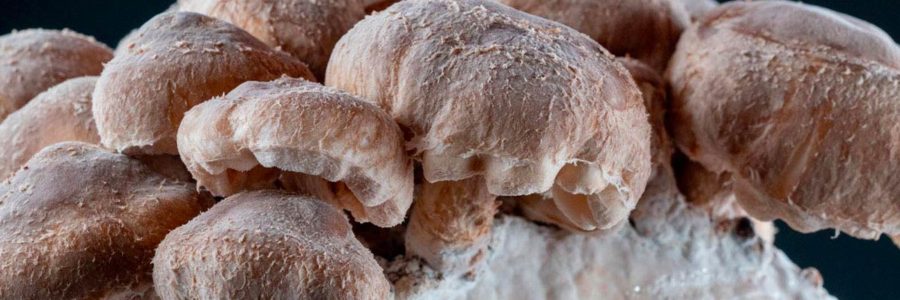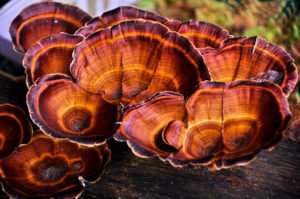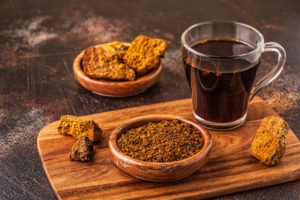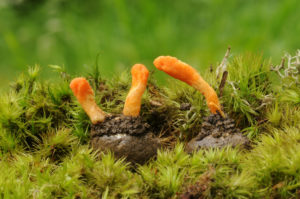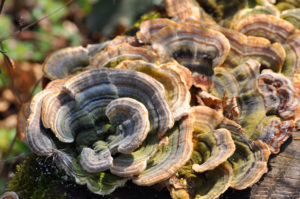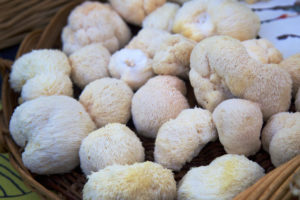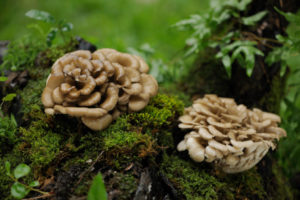Medicinal Mushrooms: Mushrooms have been used for medicinal purposes since ancient times. Given that they are full of compounds that support your body’s natural defense systems, it’s not surprising that they are a popular dietary supplement today. They boost your immune system, help you manage stress, and may help your body fight against cancer cells.
This article has been medically reviewed by Dr. Charles Penick, MD
But with all the different options, it can be challenging to figure out which option is best. This article will share the science behind medicinal mushrooms and the top choices for your wellness journey.
What are the benefits of medicinal mushrooms?
Medicinal mushrooms are macroscopic fungi that can be eaten or taken in supplement form to promote health benefits.
They are considered “medicinal” because they are so rich in health-promoting compounds and benefits, including:
- Antioxidants. Mushrooms are potent free-radical scavengers that protect your body against cellular and DNA damage.
- Immunity support. Antibacterial and antiviral compounds help boost the immune system, while beta-glucans stimulate the activity of helpful gut bacteria. Mushrooms also contain immunomodulators that are beneficial in fighting infections.
- Anti-inflammatory benefits. Studies have shown certain mushrooms can reduce inflammation by suppressing pro-inflammatory cytokine production. They are also rich in many other inflammation-fighting compounds.
- Anti-cancer effects. Some studies show mushrooms can inhibit the progression of cancerous tumors, perhaps due to their high antioxidant activity combined with immune-boosting capabilities.
- Adaptogens. Mushrooms can support a healthy stress response by modulating the activity of stress hormones, including cortisol and adrenaline.
- Focus, mood, and cognitive support. Some evidence suggests certain mushrooms can support mental performance and cognition.
- Gut health support. Mushrooms are rich in multiple compounds known to promote healthy gut bacteria.
What are the most popular medicinal mushrooms?
If you’re ready to incorporate mushrooms, here are some of the most common and well-researched choices:
Reishi
Reishi, the “mushroom of longevity,” is one of the most well-studied medicinal mushrooms for wellness and longevity. It’s deeply nourishing for your immune system, supports a healthy stress response, and even may help with sleep.
It contains many health-promoting compounds, such as triterpenoids and polysaccharides, known for their anti-tumor and anti-microbial health benefits. It’s also high in antioxidants that help your body fight back against free radical damage and oxidative stress.
Chaga
Chaga is another mushroom rich in antioxidants and immune-supporting compounds. Traditionally this mushroom was used for gastrointestinal disorders for its supposed anti-parasitic and antibacterial properties. Current research suggests it may also have anti-cancer properties.
Chaga mushrooms contain prebiotics that supports your immune system and gut health. 8 They also may help reduce inflammation by suppressing the activity of pro-inflammatory mediators.
Cordyceps
Cordyceps are known for their immune-supporting and anti-inflammatory properties. This mushroom shows promising anti-cancer benefits and has been shown to inhibit cancer growth in lab studies.
Cordyceps contains compounds with immunomodulatory properties that boost your immune system, fight infection, support stem cell activity, and inhibit cancer cell growth. It may also support fatigue and increase energy levels by improving energy metabolism and cellular respiration, especially during exercise.
Turkey tail
Named because it looks like a turkey’s tail feathers, this mushroom is another antioxidant-rich option that helps protect your cells against free radical damage. Traditional use in Chinese medicine focused on lung support, while much of the current research supports its anti-cancer benefits.
One compound found in Turkey Tail, polysaccharide K (PSK), is already being used for cancer treatment and protection in Japan. Several studies point to its efficacy for stimulating immune cells that fight back against cancer cells, especially in conjunction with chemotherapy. Studies have examined its impact on various types of cancers, including breast, gastric, colon, and lung. An NIH clinical trial found that turkey tail supported increases in cancer-fighting cells for people with breast cancer post-radiation.
Lion’s mane
Lion’s mane is primarily used for cognition and neurological protection. It also has been well studied for its impact on mental health and improvements in focus. Lion’s mane contains compounds that can stimulate nerve growth factor (NGF) production, which can help prevent neuron death or damage. NGF is responsible for encouraging the growth of neurons while simultaneously helping them resist degeneration
Lion’s mane has also been shown in several studies to promote the growth of new neurons and nerve tissue which may be beneficial for patients with Alzheimer’s disease. It may work by inhibiting the action of beta-amyloid proteins, which are associated with Alzheimer’s disease, as seen in animal studies.
Maitake
Another powerful immune supporter, Maitake, has been used in traditional medicine for many years. It’s a delicious addition to any dish or salad, but the supplement is often used for extra health benefits. Like other mushrooms, Maitake is high in polysaccharides, especially beta-glucans, which are known to promote immune function and support gut and heart health.
It’s also known for its benefits, including cellular protection, blood sugar balance, blood pressure improvements, and cardiovascular health. Maitake mushrooms may also help lower cholesterol levels, as seen in several studies.
Use medicinal mushrooms to optimize your health
Medicinal mushrooms have a wide variety of health benefits that are worth exploring. You can experiment with different types of mushrooms to find the best fit for you, or try taking a combination supplement containing multiple mushroom species.
With so many ways medicinal mushrooms can help you live a healthier life, it’s worth researching to find out which supplement is best for you. There are countless benefits of taking them as health supplements and including them in your diet.
Medical Disclaimer: This article is based on the opinions of The Cell Health team. The information on this website is not intended to replace a one-on-one relationship with a qualified healthcare professional and is not intended as medical advice. It is intended to share knowledge and information from the research and experience of the Cell Health team. This article has been medically reviewed by Dr. Charles Penick, MD, for the accuracy of the information provided, but we encourage you to make your own healthcare decisions based on your research and in partnership with a qualified healthcare professional.
References:
- Lindequist, Ulrike, Ha Won Kim, Evelin Tiralongo, and Leo Van Griensven. “Medicinal Mushrooms.” Evidence-Based Complementary and Alternative Medicine : ECAM 2014 (2014): 806180. https://doi.org/10.1155/2014/806180.
- Sánchez, Carmen. “Reactive Oxygen Species and Antioxidant Properties from Mushrooms.” Synthetic and Systems Biotechnology 2, no. 1 (December 24, 2016): 13–22. https://doi.org/10.1016/j.synbio.2016.12.001.
- Zhao, Shuang, Qi Gao, Chengbo Rong, Shouxian Wang, Zhekun Zhao, Yu Liu, and Jianping Xu. “Immunomodulatory Effects of Edible and Medicinal Mushrooms and Their Bioactive Immunoregulatory Products.” Journal of Fungi 6, no. 4 (November 8, 2020): 269. https://doi.org/10.3390/jof6040269.
- Muszyńska, Bożena, Agata Grzywacz-Kisielewska, Katarzyna Kała, and Joanna Gdula-Argasińska. “Anti-Inflammatory Properties of Edible Mushrooms: A Review.” Food Chemistry 243 (March 15, 2018): 373–81. https://doi.org/10.1016/j.foodchem.2017.09.149.
- Ba, Djibril M, Paddy Ssentongo, Robert B Beelman, Joshua Muscat, Xiang Gao, and John P Richie Jr. “Higher Mushroom Consumption Is Associated with Lower Risk of Cancer: A Systematic Review and Meta-Analysis of Observational Studies.” Advances in Nutrition, no. nmab015 (March 16, 2021). https://doi.org/10.1093/advances/nmab015.
- Liao, Lian-ying, Yi-fan He, Li Li, Hong Meng, Yin-mao Dong, Fan Yi, and Pei-gen Xiao. “A Preliminary Review of Studies on Adaptogens: Comparison of Their Bioactivity in TCM with That of Ginseng-like Herbs Used Worldwide.” Chinese Medicine 13 (November 16, 2018): 57. https://doi.org/10.1186/s13020-018-0214-9.
- Sabaratnam, Vikineswary, Wong Kah-Hui, Murali Naidu, and Pamela Rosie David. “Neuronal Health – Can Culinary and Medicinal Mushrooms Help?” Journal of Traditional and Complementary Medicine 3, no. 1 (2013): 62–68. https://doi.org/10.4103/2225-4110.106549.
- Jayachandran, Muthukumaran, Jianbo Xiao, and Baojun Xu. “A Critical Review on Health Promoting Benefits of Edible Mushrooms through Gut Microbiota.” International Journal of Molecular Sciences 18, no. 9 (September 8, 2017): 1934. https://doi.org/10.3390/ijms18091934.
- Cör, Darija, Željko Knez, and Maša Knez Hrnčič. “Antitumour, Antimicrobial, Antioxidant and Antiacetylcholinesterase Effect of Ganoderma Lucidum Terpenoids and Polysaccharides: A Review.” Molecules : A Journal of Synthetic Chemistry and Natural Product Chemistry 23, no. 3 (March 13, 2018): 649. https://doi.org/10.3390/molecules23030649.
- Lin, Zhibin, and Aoyi Deng. “Antioxidative and Free Radical Scavenging Activity of Ganoderma (Lingzhi).” Advances in Experimental Medicine and Biology 1182 (2019): 271–97. https://doi.org/10.1007/978-981-32-9421-9_12.
- Hu, Yang, Yi Sheng, Min Yu, Koukou Li, Guangming Ren, Xiuhong Xu, and Juanjuan Qu. “Antioxidant Activity of Inonotus Obliquus Polysaccharide and Its Amelioration for Chronic Pancreatitis in Mice.” International Journal of Biological Macromolecules 87 (June 2016): 348–56. https://doi.org/10.1016/j.ijbiomac.2016.03.006.
- Szychowski, Konrad A., Bartosz Skóra, Tadeusz Pomianek, and Jan Gmiński. “Inonotus Obliquus – from Folk Medicine to Clinical Use.” Journal of Traditional and Complementary Medicine 11, no. 4 (July 1, 2021): 293–302. https://doi.org/10.1016/j.jtcme.2020.08.003.
- Géry, Antoine, Christelle Dubreule, Véronique André, Jean-Philippe Rioult, Valérie Bouchart, Natacha Heutte, Philippe Eldin de Pécoulas, Tetyana Krivomaz, and David Garon. “Chaga (Inonotus Obliquus), a Future Potential Medicinal Fungus in Oncology? A Chemical Study and a Comparison of the Cytotoxicity Against Human Lung Adenocarcinoma Cells (A549) and Human Bronchial Epithelial Cells (BEAS-2B).” Integrative Cancer Therapies 17, no. 3 (February 27, 2018): 832–43. https://doi.org/10.1177/1534735418757912.
- Arata, Satoru, Jun Watanabe, Masako Maeda, Masato Yamamoto, Hideto Matsuhashi, Mamiko Mochizuki, Nobuyuki Kagami, Kazuho Honda, and Masahiro Inagaki. “Continuous Intake of the Chaga Mushroom (Inonotus Obliquus) Aqueous Extract Suppresses Cancer Progression and Maintains Body Temperature in Mice.” Heliyon 2, no. 5 (May 12, 2016): e00111. https://doi.org/10.1016/j.heliyon.2016.e00111.
- Debnath, Trishna, Sa Ra Park, Da Hye Kim, Jeong Eun Jo, and Beong Ou Lim. “Anti-Oxidant and Anti-Inflammatory Activities of Inonotus Obliquus and Germinated Brown Rice Extracts.” Molecules 18, no. 8 (August 2013): 9293–9304. https://doi.org/10.3390/molecules18089293.
- Vasiljevic, Jovana D., Lada P. Zivkovic, Andrea M. Cabarkapa, Vladan P. Bajic, Ninoslav J. Djelic, and Biljana M. Spremo-Potparevic. “Cordyceps Sinensis: Genotoxic Potential in Human Peripheral Blood Cells and Antigenotoxic Properties Against Hydrogen Peroxide by Comet Assay.” Alternative Therapies in Health and Medicine 22 Suppl 2 (June 2016): 24–31.
- Yoon, So Young, Soo Jung Park, and Yoon Jung Park. “The Anticancer Properties of Cordycepin and Their Underlying Mechanisms.” International Journal of Molecular Sciences 19, no. 10 (October 4, 2018): E3027. https://doi.org/10.3390/ijms19103027.
- Xu, Yan-Feng. “Effect of Polysaccharide from Cordyceps Militaris (Ascomycetes) on Physical Fatigue Induced by Forced Swimming.” International Journal of Medicinal Mushrooms 18, no. 12 (2016): 1083–92. https://doi.org/10.1615/IntJMedMushrooms.v18.i12.30.
- Janjušević, Ljiljana, Maja Karaman, Filip Šibul, Giuseppina Tommonaro, Carmine Iodice, Dragica Jakovljević, and Boris Pejin. “The Lignicolous Fungus Trametes Versicolor (L.) Lloyd (1920): A Promising Natural Source of Antiradical and AChE Inhibitory Agents.” Journal of Enzyme Inhibition and Medicinal Chemistry 32, no. 1 (January 18, 2017): 355–62. https://doi.org/10.1080/14756366.2016.1252759.
- Sadahiro, Sotaro, Toshiyuki Suzuki, Yuji Maeda, Akira Tanaka, Akemi Kamijo, Chieko Murayama, Yuko Nakayama, and Takeshi Akiba. “Effects of Preoperative Immunochemoradiotherapy and Chemoradiotherapy on Immune Responses in Patients with Rectal Adenocarcinoma.” Anticancer Research 30, no. 3 (March 2010): 993–99.
- Oba, Koji, Satoshi Teramukai, Michiya Kobayashi, Takanori Matsui, Yasuhiro Kodera, and Junichi Sakamoto. “Efficacy of Adjuvant Immunochemotherapy with Polysaccharide K for Patients with Curative Resections of Gastric Cancer.” Cancer Immunology, Immunotherapy: CII 56, no. 6 (June 2007): 905–11. https://doi.org/10.1007/s00262-006-0248-1.
- “Phase 1 Clinical Trial of Trametes Versicolor in Women with Breast Cancer.” Accessed July 9, 2021. https://www.ncbi.nlm.nih.gov/pmc/articles/PMC3369477/.
- Lai, Puei-Lene, Murali Naidu, Vikineswary Sabaratnam, Kah-Hui Wong, Rosie Pamela David, Umah Rani Kuppusamy, Noorlidah Abdullah, and Sri Nurestri A. Malek. “Neurotrophic Properties of the Lion’s Mane Medicinal Mushroom, Hericium Erinaceus (Higher Basidiomycetes) from Malaysia.” International Journal of Medicinal Mushrooms 15, no. 6 (2013): 539–54. https://doi.org/10.1615/intjmedmushr.v15.i6.30.
- “Erinacine A-Enriched Hericium Erinaceus Mycelium Ameliorates Alzheimer’s Disease-Related Pathologies in APPswe/PS1dE9 Transgenic Mice – PubMed.” Accessed July 9, 2021. https://pubmed.ncbi.nlm.nih.gov/27350344/.
- Ciecierska, Anna, Małgorzata Ewa Drywień, Jadwiga Hamulka, and Tomasz Sadkowski. “Nutraceutical Functions of Beta-Glucans in Human Nutrition.” Roczniki Panstwowego Zakladu Higieny 70, no. 4 (2019): 315–24. https://doi.org/10.32394/rpzh.2019.0082.
- Chen, Ya-Hui, Chien-Hsing Lee, Tai-Hao Hsu, and Hui-Chen Lo. “Submerged-Culture Mycelia and Broth of the Maitake Medicinal Mushroom Grifola Frondosa (Higher Basidiomycetes) Alleviate Type 2 Diabetes-Induced Alterations in Immunocytic Function.” International Journal of Medicinal Mushrooms 17, no. 6 (2015): 541–56. https://doi.org/10.1615/intjmedmushrooms.v17.i6.50.
- Preuss, Harry G., Bobby Echard, Debasis Bagchi, and Nicholas V. Perricone. “Maitake Mushroom Extracts Ameliorate Progressive Hypertension and Other Chronic Metabolic Perturbations in Aging Female Rats.” International Journal of Medical Sciences 7, no. 4 (June 7, 2010): 169–80.
- Sato, Mayumi, Yoshihiko Tokuji, Shozo Yoneyama, Kyoko Fujii-Akiyama, Mikio Kinoshita, Hideyuki Chiji, and Masao Ohnishi. “Effect of Dietary Maitake (Grifola Frondosa) Mushrooms on Plasma Cholesterol and Hepatic Gene Expression in Cholesterol-Fed Mice.” Journal of Oleo Science 62, no. 12 (2013): 1049–58. https://doi.org/10.5650/jos.62.1049.


